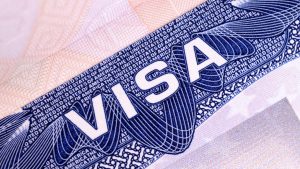Australia is a prime destination for entrepreneurs and businesses around the world. With its stable economy, transparent legal system, and friendly business environment, it’s no surprise that investors from India, the UK, and the US are increasingly looking to expand or start new ventures there. If you’re considering company registration in Australia while based overseas, this guide will walk you through the entire process, step by step.
Why Register a Company in Australia?
Australia ranks among the top countries for ease of doing business. It has a well-regulated market, strong intellectual property protections, and a corporate tax system that encourages innovation and international trade. For business owners in India, the UK, and the US, registering a company in Australia opens the door to operating in the Asia-Pacific region, accessing new markets, and building credibility.
Moreover, Australia has double taxation agreements with many countries, including India, the UK, and the US. This allows foreign companies to manage their tax obligations more efficiently.
Can You Register a Company in Australia from Overseas?
Yes, you can. Foreign individuals and companies can legally register a business in Australia without needing to be physically present. The process is primarily online and governed by the Australian Securities and Investments Commission (ASIC). However, there are specific requirements you must meet, such as having a resident director and a registered Australian address.
Let’s go through the steps.
Step 1: Choose Your Company Structure
The most common type of entity used by foreign entrepreneurs is a Proprietary Limited (Pty Ltd) company. This is a private company limited by shares and has several advantages:
- Separate legal entity
- Limited liability for shareholders
- Easier to raise funds
- Recognition under Australian corporate law
Alternatively, you can register a branch office or partnership, but the Pty Ltd structure is generally the most flexible and tax-efficient for overseas founders.
Step 2: Select a Company Name
You’ll need to choose a unique company name that isn’t already registered in Australia. You can check name availability through the ASIC website.
If you prefer, you can also register your company using its Australian Company Number (ACN), which is automatically assigned upon registration. You can always register a business name later for branding purposes.
Also Read: Documents Required for Offshore Business Setup in Ireland
Step 3: Appoint a Resident Director
To register a company in Australia, at least one director must ordinarily reside in Australia. This is a non-negotiable legal requirement.
If you don’t have an eligible person in your network, you can engage a nominee or resident director service. These services appoint a qualified local resident to act as a director in compliance with ASIC regulations. While they don’t manage your business, they fulfil the legal requirement on paper.
Step 4: Choose a Registered Office Address
Your company must have a registered office address in Australia. This address must be a physical location and not a PO Box. If you’re registering from India, the UK, or the US and do not have a local office, you can use a virtual office or registered address service provider.
This is where all official correspondence from ASIC and other authorities will be sent.
Step 5: Determine Shareholders and Share Structure
Your Australian company can have foreign shareholders. There’s no requirement for Australian shareholders unless your business is subject to specific foreign investment rules.
You’ll need to decide:
- How many shares to issue
- Who the shareholders will be
- The value and type of shares (usually ordinary shares)
All shareholders’ details must be submitted to ASIC during registration.
Step 6: Apply for Company Registration with ASIC
Once you have all the details ready, you can lodge your application online through ASIC or through a private service provider (such as a business registration agent). The following information will be required:
- Company name
- Registered office and principal place of business
- Director(s) and shareholder(s) details
- Share structure
- Consent from officeholders
Once submitted and approved, ASIC will issue your ACN and Certificate of Registration. You are now officially an Australian company.
Also Read: Benefits of Company Incorporation in Mauritius
Step 7: Apply for ABN, TFN, and GST Registration
After company registration in Australia, you’ll need to register for:
- Australian Business Number (ABN): Required for tax and invoicing
- Tax File Number (TFN): Used for company tax returns
- Goods and Services Tax (GST): Required if turnover is expected to exceed AUD $75,000 per year
These registrations can be done through the Australian Business Register (ABR) or with the help of your accountant or registration agent.
Step 8: Comply with Ongoing Obligations
Once your company is registered, there are ongoing compliance requirements, including:
- Annual review and payment of ASIC fee
- Lodging of annual tax returns
- Maintaining financial records
- Keeping ASIC updated with any changes to company details
You may also need to register for payroll tax, superannuation, and workers’ compensation if you plan to hire employees in Australia.
Tax Considerations for Foreign-Owned Companies
Australia has specific tax obligations for foreign companies. If your business is managed or controlled from overseas, it could still be considered an Australian tax resident. It’s important to seek advice from a qualified accountant to understand your tax residency status, transfer pricing obligations, and potential liabilities in both countries.
The Australian corporate tax rate is currently:
- 25% for base rate entities
- 30% for others
Double taxation agreements can help avoid being taxed in both Australia and your home country.
Using a Local Agent or Service Provider
If you are not familiar with Australian corporate law or don’t want to manage the process yourself, it’s advisable to use a local business registration agent. They can assist with:
- Company formation
- Resident director and registered office services
- ABN, TFN, and GST applications
- Ongoing compliance and reporting
This is especially useful for business owners based in India, the UK, or the US who may not have a local team on the ground in Australia.
Cost of Registering a Company in Australia
The cost varies depending on whether you register directly with ASIC or use an agent. Basic ASIC fees start at around AUD $576 (as of 2025), but additional costs can include:
- Resident director fees
- Registered office services
- Tax and accounting setup
- Legal and compliance support
A complete setup through an agent can range from AUD $1,500 to $5,000 depending on your needs.
Also Read: Business Structures for Company Registration in Egypt
Conclusion
Registering a company in Australia from India, the UK, or the US is a straightforward process if you follow the required steps. With the right support, you can establish a compliant, credible Australian company and access the dynamic Asia-Pacific market. Whether you’re expanding your business or launching a new venture, understanding the legal and regulatory framework will ensure a smooth entry into the Australian business landscape.
Frequently Asked Questions
1. Do I need to be an Australian citizen to register a company in Australia?
No, you do not need to be an Australian citizen. However, you must appoint at least one director who is an Australian resident.
2. Can I register an Australian company if I don’t have an office in Australia?
Yes, but you will need to provide a local registered office address. Many providers offer registered address and virtual office services for this purpose.
3. How long does it take to register a company in Australia from overseas?
The process is typically completed within 1 to 3 business days if all documents and requirements are in order.






